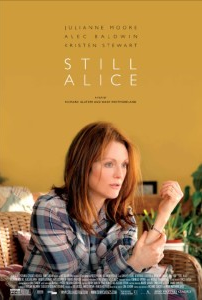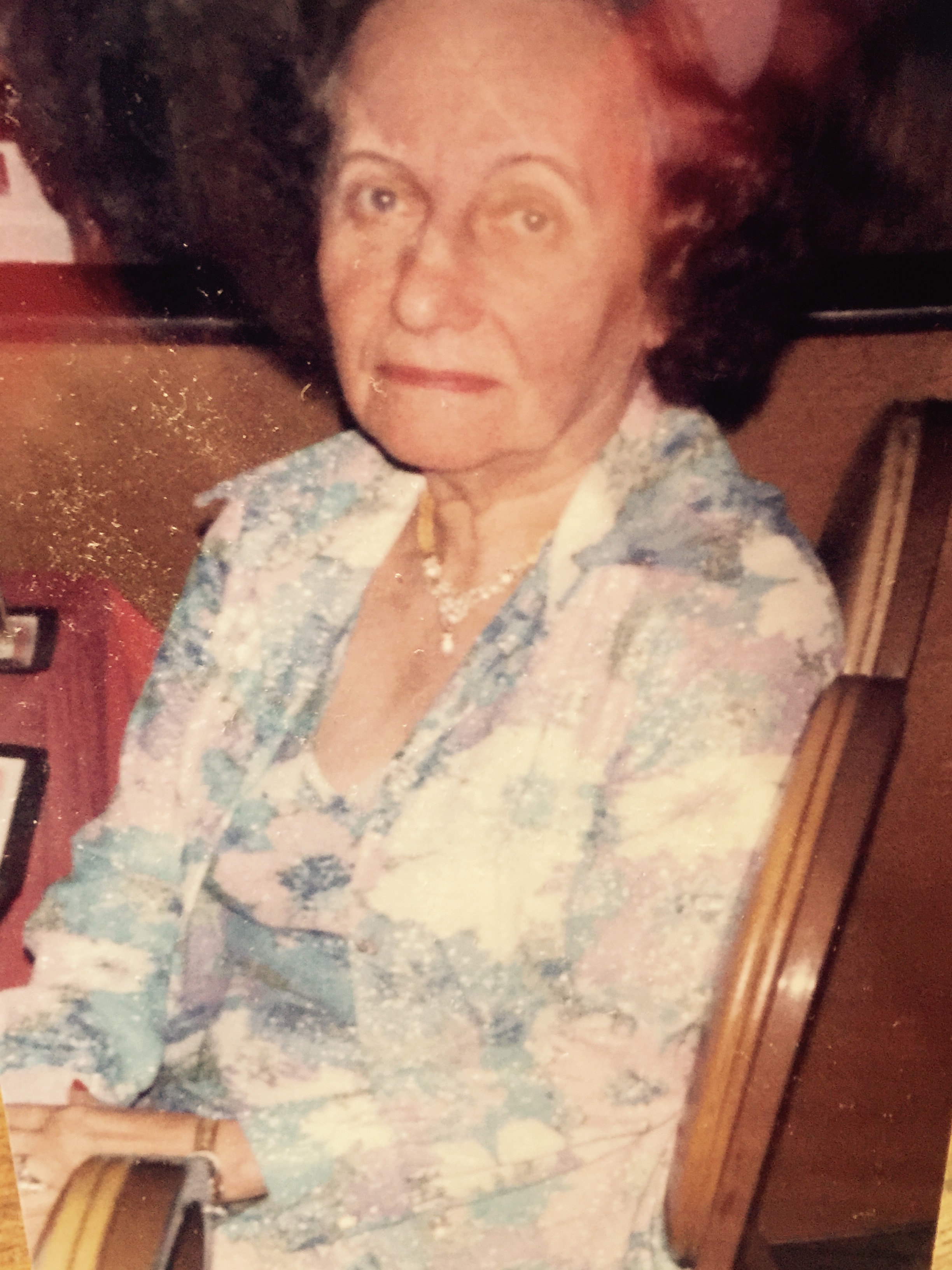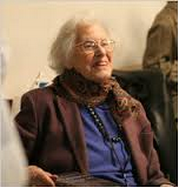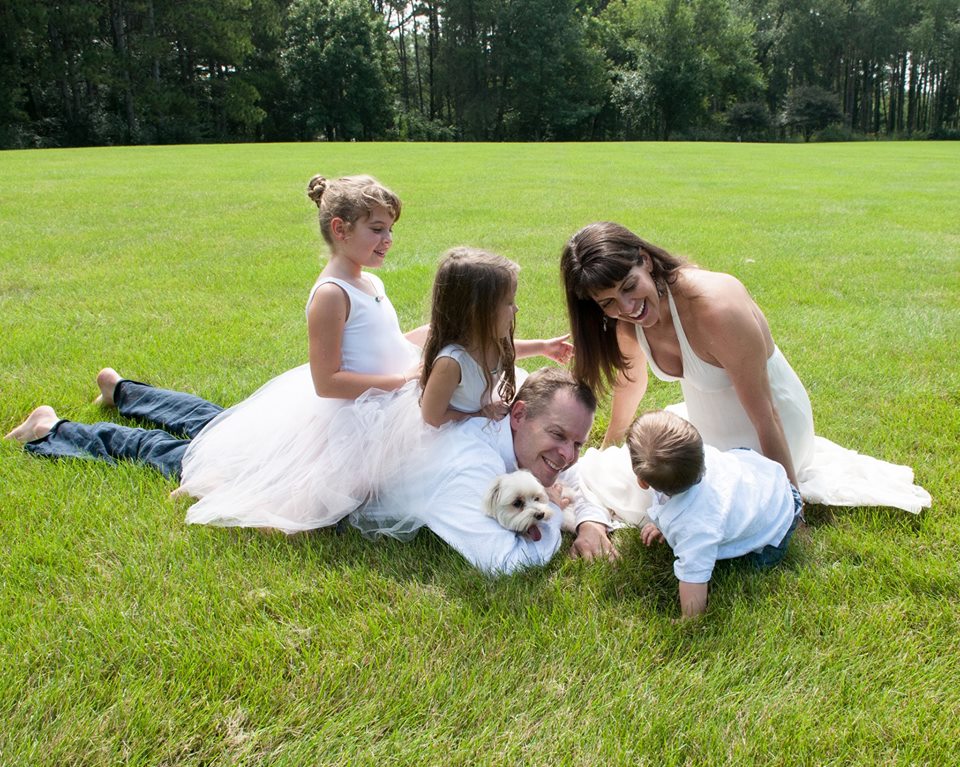I saw the movie Still Alice last night.
 It is a story about a very accomplished professor at Columbia University who is diagnosed with early onset Alzheimer’s. It is a tragic tale of how she tries desperately to hold onto memories, all the while slipping down this slope of inevitable and complete memory loss and ultimate death. The disease is devastating.
It is a story about a very accomplished professor at Columbia University who is diagnosed with early onset Alzheimer’s. It is a tragic tale of how she tries desperately to hold onto memories, all the while slipping down this slope of inevitable and complete memory loss and ultimate death. The disease is devastating.

My grandmother had it and I watched my mother and father take care of her for years without her knowing where she was or who was taking care of her. Grandma Rae was a strong and vibrant woman who had the knack for betting on the long shots and always winning. My grandfather would always bet on the sure thing and he would lose more times than win. And every time he thought Rachel was crazy for choosing the horses the way she did, she would always have the last laugh. She would be counting her money while he’d be asking her to lend him some more for the next bet. She was always his good luck charm. But her luck ran out when she was diagnosed later in life with Alzheimer’s. And this movie just brought me back to those memories.
There is a line in the movie where Julianne Moore’s character says “My yesterdays are disappearing, and my tomorrows are uncertain, so what do I live for? I live for each day. I live in the moment.” I understand completely from where the author, Lisa Genova, wrote that line. I cannot, nor will I ever, compare my situation to anyone else’s, especially one who has suffered for years with this debilitating disease, but I had a glimpse of my life slipping away from me. In the 3 months prior to my AFE, I felt I needed to hold onto and make as many memories as I could. I felt the countdown to the end of my life beginning and I wanted to absorb every memory I had of my husband and my 2 daughters. I imagined the talks I would have had with them as they grew older and who Jacob would look like and what kind of man he would become. I tried to emblazon every single second in my mind so I could take those memories with me to the grave.

People ask hypothetically all the time, “What would be worse in the end, to lose the function of the body or the mind?” I have to say, for me it would definitely be the mind. I want to be conscious of everything around me. The names, faces, the way to communicate and show love. Jonathan’s grandmother, Ruth Proskauer Smith, was 104 when she died. And she had her memory intact. She was a marvel at Scrabble, a challenge to argue with and a whiz at historical events, dates and details, only a Jeopardy contestant would know off the top of her head. She worked with Gloria Steinham to create NOW, she taught a class about the Supreme Court as a hobby in her 80s and she went to visit the Vatican when she was 92. As a centenarian, she took NYC transit every day. She was independent and happy to lend her mind for a cause.
I never realized how much of an impact Jonathan’s grandmother had on every person she encountered. The same could be said of my grandmother, who died at 95. They were both very strong-willed, driven towards different goals, but in the end, both had suffered when they lost their husbands many years before and both ended life as we know it with peace and family by their sides. One left this Earth with her mind unscathed and the other did not. I can tell you from first hand experience, losing the capabilities of your body is much “easier” to deal with than the mind. Ruth was able to say goodbye, acknowledge it was her time and donated her brain to science, (this was the ultimate gift she wanted to give) always thinking of the future and generations to come. My grandmother was scared, thought she was my mother’s daughter, woke up terrified almost every day, and would scream this haunting and horrific wail throughout the day. She was tortured until the moment she rested in peace.
Death in this physical world is beyond excruciating to the ones left behind, but if I can give a little peace to anyone reading this, the ones who are leaving are fine. Of course they never wanted to leave the physical touch and smell of this world. Absolutely they miss being able to speak to you in the traditional way. But they most certainly do not miss being ill, being in pain and having to wonder if today will be the day that they are passing. Where they are now, they are no longer in pain, they are stronger and healthier and they are able to see you and everything you see (just from a different angle). They are not there 24/7 because they are busy playing catch up with the ones who left them years before. So if you are wondering whether they are watching you shower (or doing anything else)– I’m thinking they are not pre-occupied with it, so you shouldn’t be.
I am glad I am alive and I am even happier that I can make more moments.
I cry at almost everything related to my family. My husband can’t let one day go by without telling me how grateful he is that our family is what it is today. It is all good. Even when it is not so good. I still have to get checkups more frequently than not. I still get scared going to the neurologist. I have to go in periodically and do those memory tests, akin to the ones in the movie and I worry I will fail, each and every time I am there. Only time will tell what the long term affects will be from suffering an AFE. But I am glad for this moment. The moment where I sit here at my computer, writing this, knowing I will crawl into bed and spend a restful night dreaming about more memories I will make with my family again tomorrow. Overjoyed, because I am Still Here!

